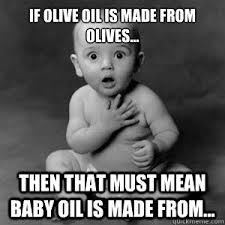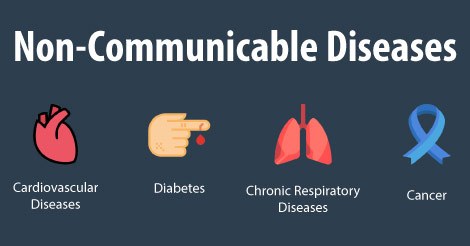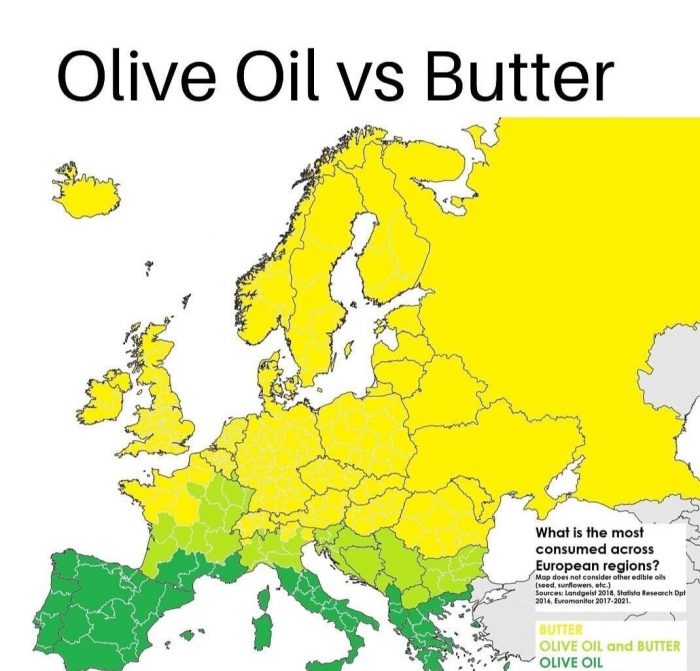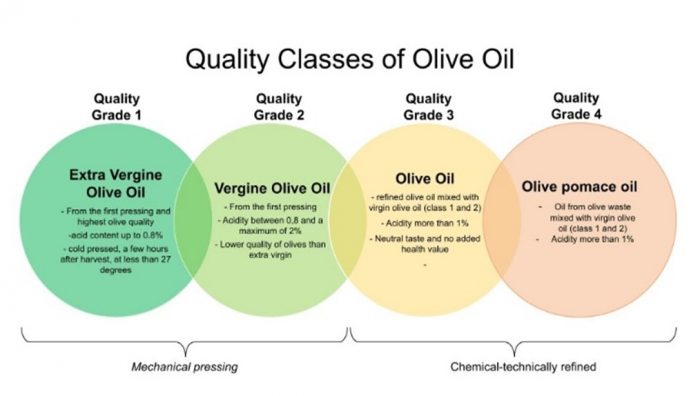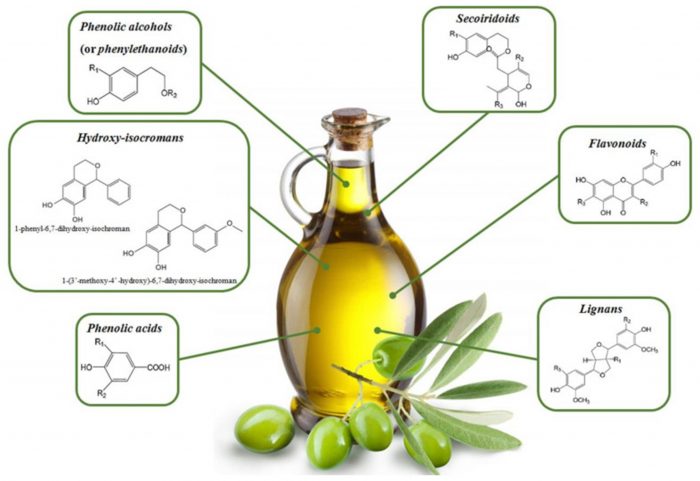The Power of Extra Virgin Olive Oil
Posted by Phil Heler on March 8, 2024Even in the UK we have access to a good profile of vegetables such as carrots and cabbages that have just as much value as aubergines and peppers seen in the Mediterranean diet. So where is the point of difference? The difference might be extra virgin olive oil.
There is now a great deal of hard evidence that continues to suggest that a Mediterranean diet really does lower the risk of heart attack (and other conditions) while increasing your lifespan and promoting healthy aging. What’s not to love?! Bruschetta with fresh fragrant basil, the wonderful texture of mozzarella, beautiful fresh tomatoes accompanied by balsamic vinegar and extra virgin olive oil chased down by a glass of Chianti Classico.
Rarely in life can we enjoy such a guilty pleasure without pay back. Unfortunately, the bit that is missing is that I do not live anywhere near the Peloponnese and there are no local piazzas. The layers upon layers of history, culture, and beauty that make up the Mediterranean are only accessible by Manchester Airport.
Even more amazing is that the gold standard Mediterranean diet now has a cousin called ‘The Atlantic diet’. The Atlantic diet has a very similar feel to the Mediterranean diet but with slightly different foods, like cod, red meat, and pork products and potatoes.
The Atlantic diet is typical to north-western Spain and Portugal. A recent study published in December 2023 in the European Journal of Preventative Cardiology demonstrated that people in these territories also had significantly less risk of heart disease and cancer. Then the next question is, why does all this matter?
Chronic non-communicable diseases (or NCDs) such as heart disease, cancer and diabetes are now a huge concern in healthcare. The existence of NCDs is made worse by the fact that they are largely unnecessary and preventable. Needless to say, NCDs also have a huge effect on the NHS which has just dragged us kicking and screaming through a pandemic.
They are responsible worldwide for the deaths of a staggering 41 million people each year, equivalent to 74% of all deaths globally. Statistically over 80% of all premature NCD deaths are purely related to cardiovascular diseases. Most of these deaths can be prevented by one simple modifiable risk factor. This is simply eating a better diet. This is why diet matters. Healthy dietary patterns that are rich in plant foods (and polyphenols) as an intervention could make a realistic difference.
Both the Atlantic and Mediterranean diets are predominantly plant-based. They are rich in seasonal fruits and vegetables, legumes, nuts, whole-grain cereals, moderate servings of oily fish, and fermented dairy such as feta cheese and yogurt. They are lower in red meat consumption with a preference for white meats.
Even in the UK we have access to a good profile of vegetables such as carrots and cabbages that have just as much value as aubergines and peppers. So where is the point of difference when we compare our diet to these reference diets? The difference might be extra virgin olive oil.
The use of extra virgin olive oil (EVOO) is consistent across the Mediterranean and Atlantic sea-bordering countries. EVOO is added liberally to everything as a main added fat. This is not particularly surprising as many of the countries in and around the Mediterranean basin grow olive trees (Olea europea).
The olive tree is an evergreen tree native to the Mediterranean basin. It is characterised by a very slow growth rate and has an extremely long life expectancy of up to 1000 years (some in Crete are even said to be 3000 years old). The olive plant was first cultivated some 7,000 years ago in Mediterranean regions.
For thousands of years olives were grown primarily for lamp oil. It is now one of the most important trees for the Mediterranean economy, providing many commercial products, with olive oil being top of the list. The high consumption of extra virgin olive oil (EVOO) ranges from 15.3 to 23 kg per capita/year in the Mediterranean basin, underpinning the Mediterranean diet. It is one of the major differences when compared to other healthy diets.
In most countries dietary guidelines give very little focus on why healthy fats such as extra virgin olive oils are different from other fats and oils. They do not distinguish between which fats or oils have a health benefit or those which may cause us harm. This is quite important as many seed oils such as sunflower, soybean, corn or flaxseed oils can oxidise very easily in the presence of light and heat. They then produce harmful substances such as trans fats and lipid peroxides which have been strongly connected with heart disease and DNA damage.
On the other hand, daily use of EVOO is associated with decreasing the risk of a range of diverse chronic non-communicable diseases including cardiovascular disease, diabetes, metabolic syndrome, the prevention of decline in cognitive function and cancer.
The use of EVOO has also been shown to reduce the risk of obesity and to improve overall mortality. This suggests that EVOO may well be unique among fats and oils. Given that it has this unique ability there is a clear argument that this should be reflected in dietary guidelines. While its benefits have been known for some time, the reasons have not always been clear. We do know some of the benefits lie with the simplicity of processing.
Many oils are manufactured using chemical extraction methods that include high temperatures, distillation, and solvents (usually hexane) which generate a high environmental impact. On the other hand, EVOO is obtained exclusively by mechanical and physical processes including collecting, washing, and crushing the olives, malaxation of the paste, centrifugation, storage and filtration.
Malaxation is basically the gentle mixing of the olive extract. It allows small oil droplets in the paste to combine into bigger ones, and longer mixing times serve to increase oil yield and help the oil pick up flavour components. This in turn improves quality and preserves the polyphenols present in the oil.
The effect of each step is designed to minimise the loss of polyphenols (this is the vital component). Apart from this minimal form of processing it is literally just the juice of the fruit. To be classified as ‘extra virgin’, EVOO must meet chemical and sensory standards.
It is the polyphenols in EVOO that give the health benefits and not the type of fat. Black olives contain about 570mg of polyphenols per 100g and green olives 345mg per 100g. This depends on the agronomic factors, the ripeness of olives, as well as extraction technology, along with storage or packaging processes.
Premium EVOOs can contain about 250 mg/lit of polyphenols (some very high-quality oils can contain 500mg/lit). This makes EVOO ideal as an oil for drizzling although it has a low smoke point making it less ideal for cooking. In EVOO there are at least 25 different phenols making it both a rich and varied source. So, what are polyphenols?
Polyphenols are metabolites made by plants, and more than 8,000 polyphenolic compounds have been identified in various plant species. For plants they are important as they are involved in defence against ultraviolet radiation and plant pathogens. In food meanwhile, polyphenols help to contribute to taste, colour, flavour and smell.
Epidemiological studies have repeatedly shown an inverse association between the risk of chronic human diseases and the consumption of polyphenolic rich diet.
There are numerous studies that strongly associate that long term consumption of diets rich in plant polyphenols from EVOO gives us protection against development of cancers, cardiovascular diseases, diabetes, osteoporosis and neurodegenerative diseases. Polyphenols are also the subject of an increasing scientific interest because of their possible beneficial effects on human gut health.
A study published in February 2023 concluded that polyphenols altered the gut microbiome of mice. This seemed to prompt the rodents to develop significantly lower blood pressure. This is consistent with opinions given by Tim Spector. He commented that the ‘single most important dietary factor we found for better gut health was the number of different plants we eat weekly, with 30 a week being the optimal number’. A diverse range of polyphenols from a diverse range of plants is key to this effect.
There is also increasing evidence that as antioxidants, polyphenols may protect cell constituents against oxidative damage and, therefore, limit the risk of various degenerative diseases associated with oxidative stress. This may be part of the reason that the Mediterranean and Atlantic diets contribute to a longer healthier life.
The American Founding Father Thomas Jefferson was sent to Italy in 1787 when he was an Ambassador to France. He said in his journal that ‘the olive tree is the richest gift of Heaven’. Perhaps there is more truth in this remark than he realised.
